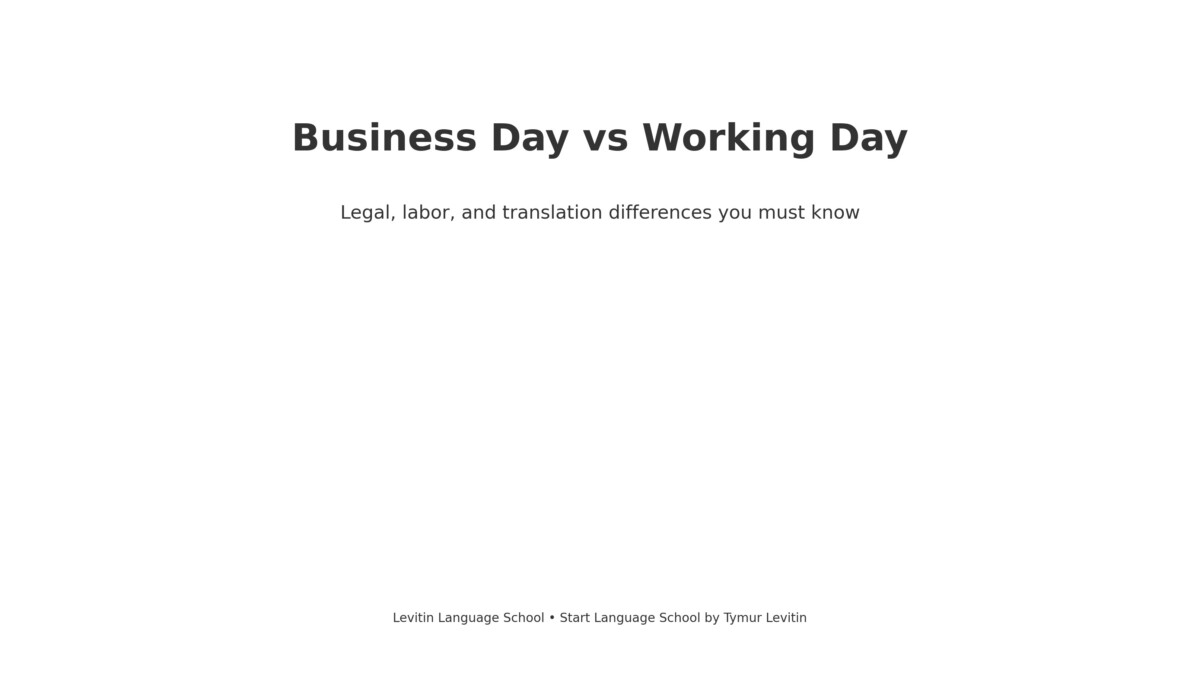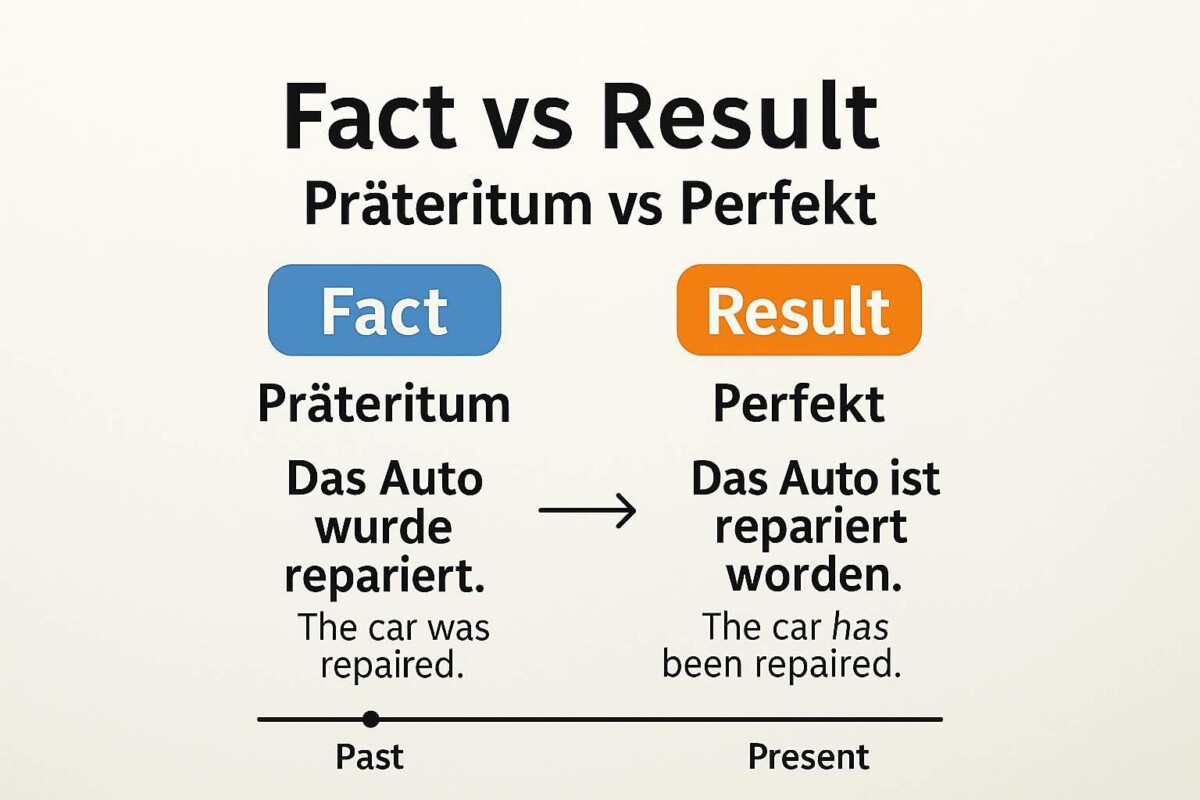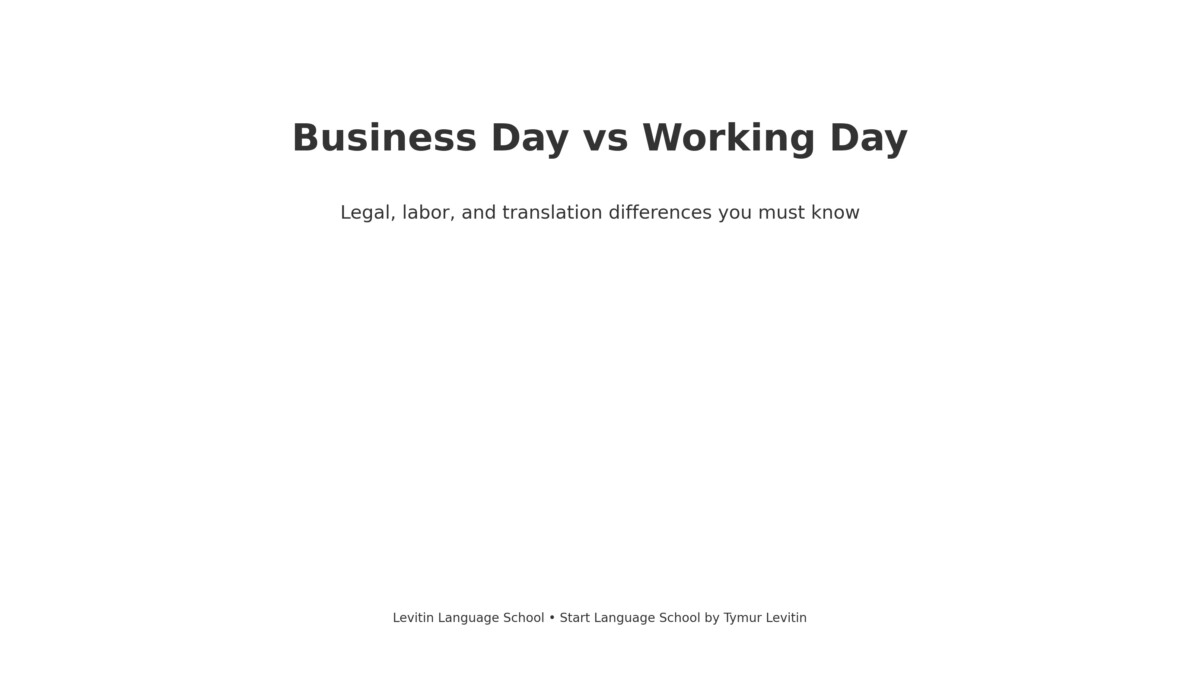Wybierz swój język: https://levitinlanguageschool.com/#languages
Wprowadzenie
At first glance, “business day” and “working day” seem interchangeable. Yet in contracts, banking, and labor law, they create different rights and obligations. A deadline in business days may expire earlier than one in working days. A vacation entitlement in working days is not the same as in calendar days.
This article explains the differences with real-life examples, so you never confuse them again.
Business Day
- Definition: Any day when commercial or financial institutions are open for business.
- Typical use: Contracts, payments, delivery deadlines.
- Key point: Excludes weekends and public holidays. In the US, Saturday is nie a business day.
Working Day
- Definition: A day considered part of the regular working schedule under law or employment contracts.
- Typical use: Employment rights, vacation calculation, overtime rules.
- Key point: May include Saturday in some countries.
Country Examples
Stany Zjednoczone
- Business day: Mon–Fri, excluding federal holidays.
- Working day: Employment contracts usually assume Mon–Fri (40-hour week).
Wielka Brytania
- Business day: Any day your payment provider is open.
- Working day: Standard Mon–Fri for most employees.
Niemcy
- Werktag (legal working day): Mon–Sat.
- Arbeitstag (practical working day): Mon–Fri.
- Vacation law: 24 Werktage = 20 Arbeitstage on a 5-day schedule.
Latin America (example Honduras)
- Vacation entitlement: After 1 year = 10 working days; after 4 years = 20.
- But with many public holidays, effective rest may feel much longer.
Translation Traps
- Business Day ≠ Working Day.
- Niemiecki: Geschäftstag (business) vs Werktag/Arbeitstag (working).
- Hiszpański: día hábil (working day) vs día natural (calendar day).
- Incorrect translations can shorten or extend legal deadlines by weeks.
Real-Life Impact
- Contracts
- “Payment within 10 business days” → depends on financial institution days.
- “Vacation of 14 working days” → depends on labor law days.
- Banking
- Payment on Friday evening? Not processed until the next business day.
- Employment
- In Germany, Saturday is legally a working day. Misinterpreting it reduces leave.
Checklist
✔ Always define “Business Day” and “Working Day” in contracts.
✔ Check jurisdiction-specific labor codes.
✔ Translate precisely (día hábil, Werktag).
✔ Clarify whether Saturdays are included.
✔ For deadlines, add a rule for holidays/weekends.
Wnioski
A Business Day is about commerce and institutions.
A Working Day is about employees and labor law.
Mixing them up leads to payroll disputes, missed deadlines, or mistranslations. Knowing the difference protects both businesses and employees.

Learn More
- Wybierz swój język: https://levitinlanguageschool.com/#languages
- English tutoring: https://levitinlanguageschool.com/languages/english/ | https://languagelearnings.com/english/
- German tutoring: https://levitinlanguageschool.com/studying-german-easy/ | https://languagelearnings.com/german/
- Spanish tutoring: https://levitinlanguageschool.com/learning-spanish/ | https://languagelearnings.com/spanish/
- Powiązany artykuł: What’s the Difference Between Business Day, Banking Day, Working Day, and Calendar Day?
Author’s note
Authored by Tymur Levitin — founder, director, and head teacher of Szkoła językowa Levitin oraz Rozpoczęcie szkoły językowej przez Tymura Levitina.
© Tymur Levitin
























